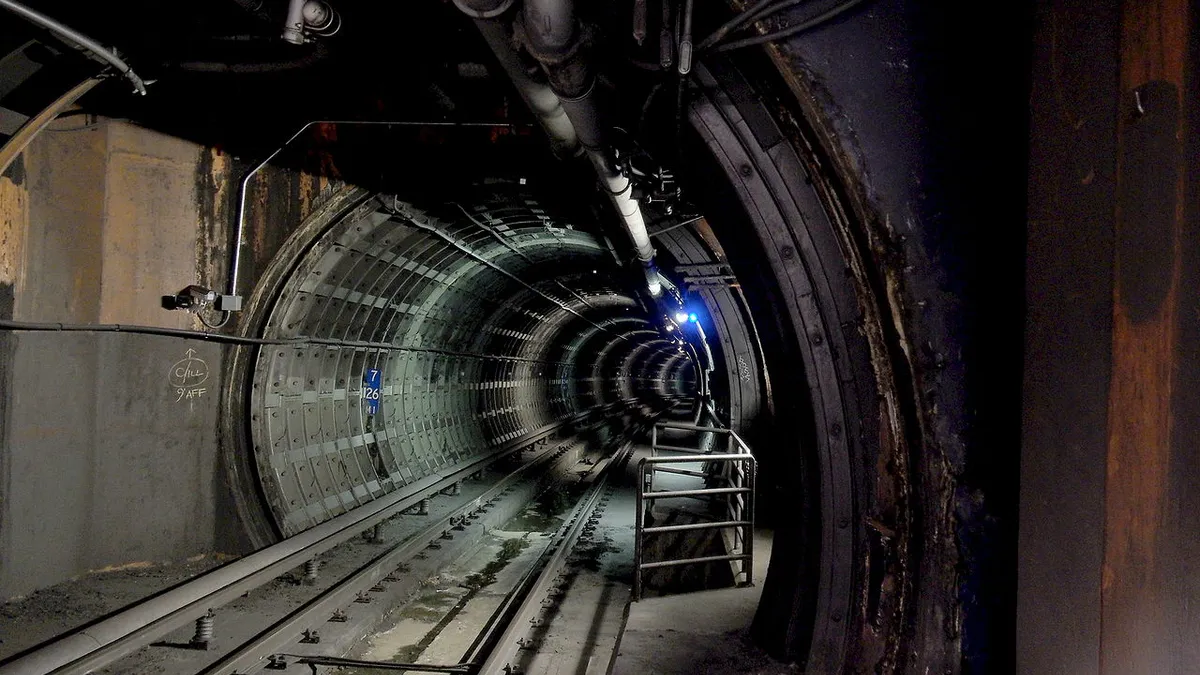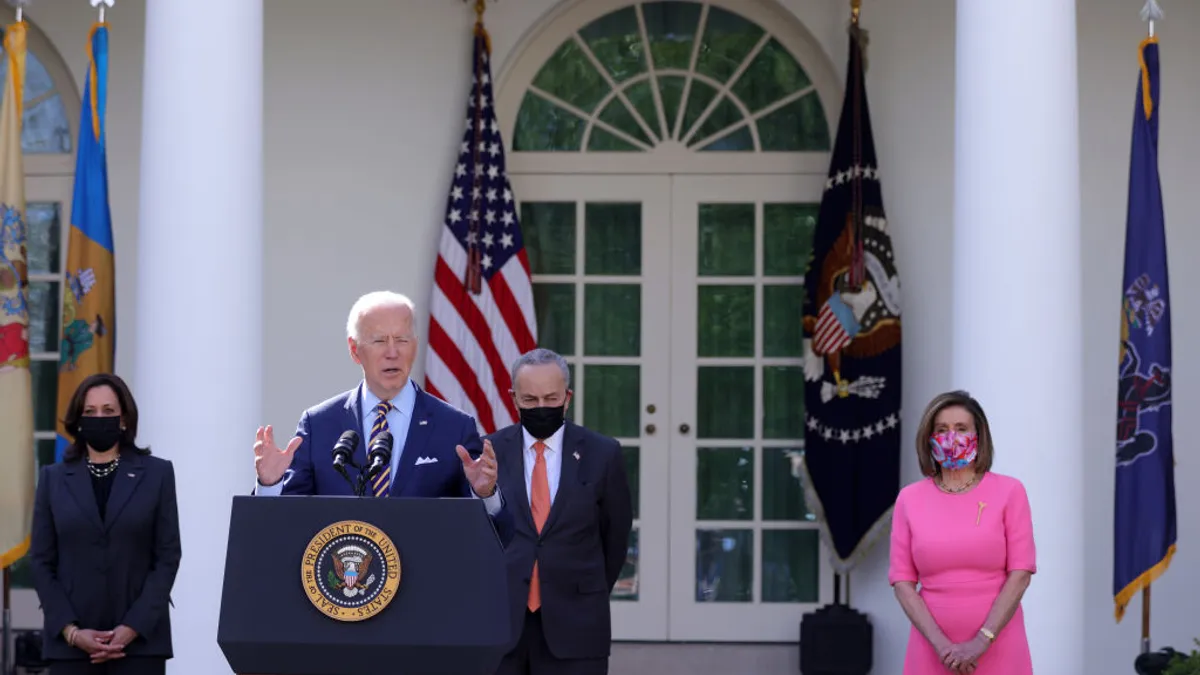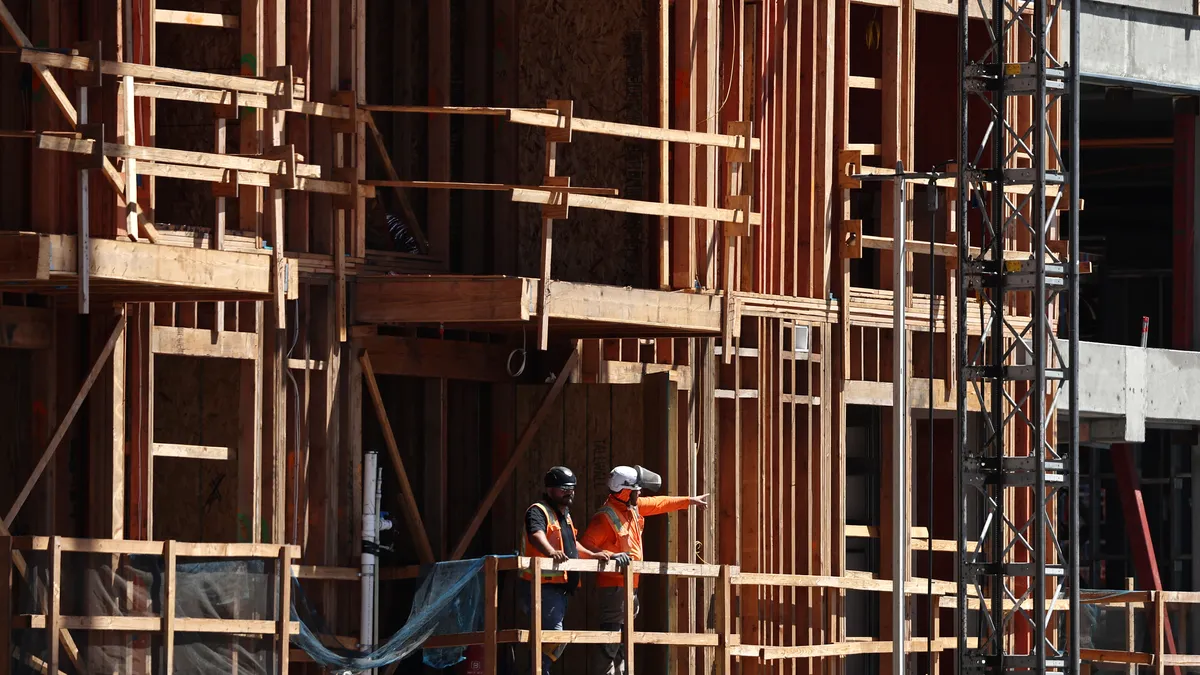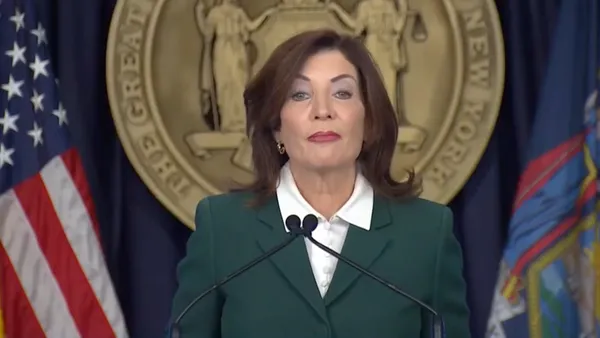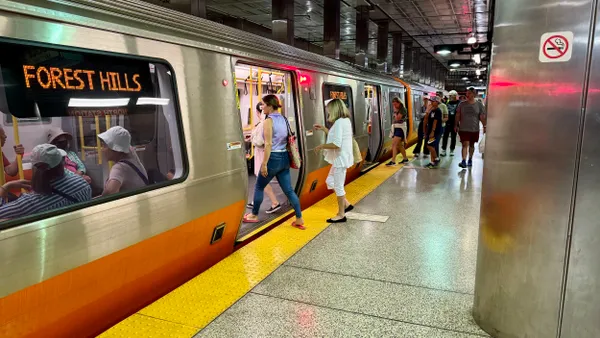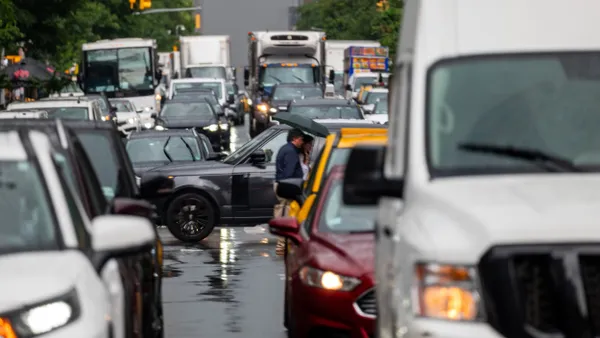Dive Brief:
- Bay Area Rapid Transit (BART) officials said they will conduct a $10 million feasibility study for a second $12 billion to $15 billion transportation tunnel under San Francisco Bay, according to KTVU.
- BART will evaluate possible connection points for a new tunnel, which communities it would best serve, and which agencies would be responsible for its operations. BART officials also said they are open to allowing other modes of transportation, like high-speed rail, to use the tunnel. The existing Transbay Tube accommodates four BART lines, and officials say its capacity will max out in 2030.
- BART officials said a new tube would allow the agency to run trains 24 hours a day and accommodate twice the maximum ridership. However, even if BART decides that a new tube would be worth the effort, the agency has no funding for the massive project.
Dive Insight:
BART has come under fire recently amid claims that a 4.3% dip in ridership during the last year is because its stations are not clean, the homeless have set up camp near or in stations, and theft and other crimes are rising, according to the San Francisco Chronicle. BART officials have responded with a plan to better maintain stations and offer services to those individuals living in them.
According to CityLab, BART isn't the only system bleeding customers. Maintenance and network issues, the rising popularity of rideshare services like Lyft and Uber, and relatively inexpensive gas prices has had an impact on transit systems from Los Angeles to Washington, D.C. But fewer riders hasn't kept some cities, including San Francisco, from planning for expansion or new regional lines.
The most expensive transportation system construction project underway is the California High Speed Rail Authority's $67 billion bullet train from Southern to Northern California. The project is years behind schedule and billions of dollars over budget primarily, the agency said, because it entered into construction contracts before it had the land secured and then had to pay higher real estate prices. The delays have also resulted in the authority having to shell out millions of dollars in change orders to contractors including Dragados-Flatiron and Tutor Perini.
After the authority's announcement in January that the bullet train project's projected costs had increased by nearly $3 billion, critics of the once-$40 billion initiative have called for a state audit of the authority.


